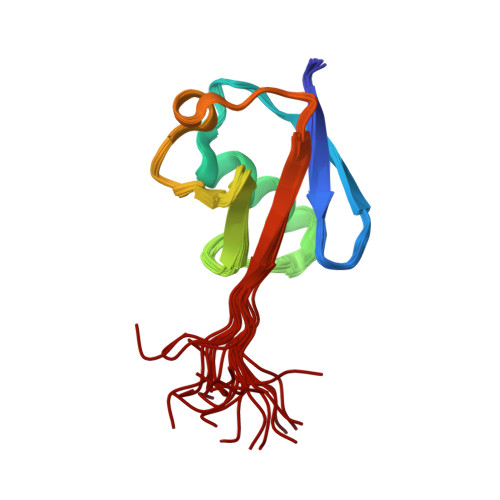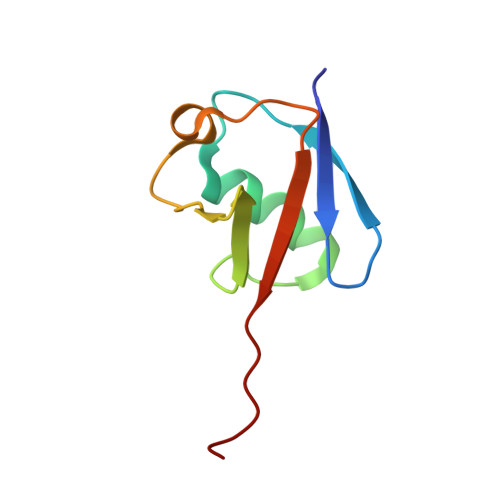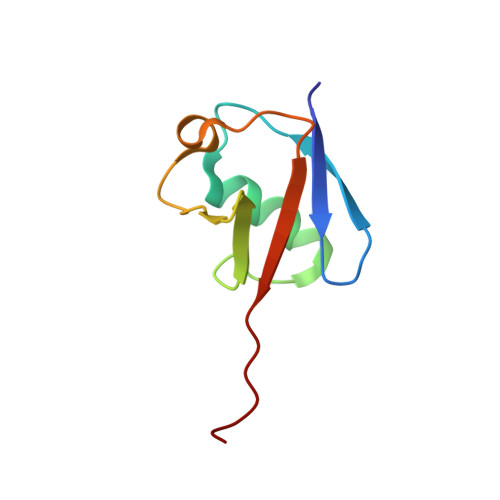Protein design with a comprehensive statistical energy function and boosted by experimental selection for foldability
Xiong, P., Wang, M., Zhou, X., Zhang, T., Zhang, J., Chen, Q., Liu, H.(2014) Nat Commun 5: 5330-5330
- PubMed: 25345468
- DOI: https://doi.org/10.1038/ncomms6330
- Primary Citation of Related Structures:
2MLB, 2MN4 - PubMed Abstract:
The de novo design of amino acid sequences to fold into desired structures is a way to reach a more thorough understanding of how amino acid sequences encode protein structures and to supply methods for protein engineering. Notwithstanding significant breakthroughs, there are noteworthy limitations in current computational protein design. To overcome them needs computational models to complement current ones and experimental tools to provide extensive feedbacks to theory. Here we develop a comprehensive statistical energy function for protein design with a new general strategy and verify that it can complement and rival current well-established models. We establish that an experimental approach can be used to efficiently assess or improve the foldability of designed proteins. We report four de novo proteins for different targets, all experimentally verified to be well-folded, solved solution structures for two being in excellent agreement with respective design targets.
Organizational Affiliation:
School of Life Sciences, University of Science and Technology of China, 443 Huangshan Road, Hefei, Anhui 230027, China.


















